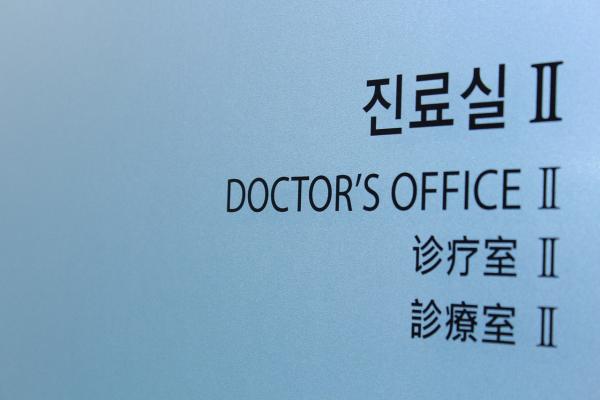
We’ve all had that one doctor we really didn’t like, the one who didn’t listen, was brusque, and gave you what turned out to be bad advice, right? You know, the one whose bedside manner was somewhere between Don Rickles and Bill Maher. Well, there’s a dirty little secret that most doctors hide: They’re people, too. They have that cringe-worthy patient, the sight of whose name on the schedule ruins their day, the one whose presence requires a deep, calming breath before entering the exam room, the one for whom you tell your assistant to get you if you don’t come up for air in 20 minutes, the one who makes the staff cry.
That surprises most people, who may love to complain about their doctors, but never think about whether their doctors complain about them.
Like most physicians, we went into medicine to help people and generally really like our patients. But now and then, we encounter one who ruins our workday. This is something we have thought about a lot, and assuming that being a bad patient is unintentional, we have made a list of a dozen easy ways to be a good one.
And yes, we recognize that the patient’s job is not to please the doctor; our suggestions are really about getting the most out of your appointment and making your healthcare expenditure in time and money more cost-effective.
1. Arrive on time. But wait, doctors always run late, right? Yes, that is often true, but it's often due to patients arriving late, especially early in the day. If your appointment is at 8 a.m. and you arrive at the door exactly on the minute, you may think you’re right on time. But by the time you check in with the front desk, get your insurance straightened out, get the nurse to take you to the exam room and do an intake interview, it is now 8:15. Starting your visit with only five minutes left in your 20-minute appointment is not conducive to getting the most out of your visit (or keeping the doctor on schedule).
2. Be nice to the staff. But "I have to yell and scream; otherwise, I won’t get that appointment," you say. Well, that kind of behavior does get back to your doctor and the rest of the crew and can make for an uncomfortable visit. The staff members in our busy practices have to work hard, may have a long commute, and often have kids at home. Most of the time, the problems that patients get angry about are completely unavoidable.
3. Allow the nurse (or physician’s assistant) to take an intake history. This is the best way to make the visit efficient and ensure the doctor addresses your concerns. The nurse will note your concerns and record your vital signs and what medications you're taking, and then the doctor will come in prepared with all that in mind and be able to budget his or her time to address it all thoroughly, leading us to #4.
4. Do not save the real reason for your visit when the doctor is about to leave. This is called the “hand on the door sign.” The doctor has a hand on the door, about to leave the exam room when the patient finally mentions the most important issue, which may require much more time, questioning, and further examination. And there goes the schedule.
A good way to avoid this is to take to the appointment a checklist of issues to be discussed and check them off one by one. Then, at the end of the visit, when the doctor asks whether there are any other questions, the patient can quickly check the list for omissions. But see #5 below.
5. Come prepared with questions (preferably not ones suggested by consulting Dr. Google). The internet is replete with quack claims and bogus suggestions. Decide what is most important to you and focus on that. The “laundry list” patient who comes in with 25 concerns not only strikes terror into a clinician’s heart but ultimately may not get a thorough review of any one problem, let alone all.
6. Be appreciative when special needs are met -- for example, if you were added to the schedule urgently. It is much appreciated when a patient offers thanks. And if the nurse or receptionist was really helpful on the phone, write a brief note to her supervisor, which will go into her file.
7. If a procedure is scheduled, pay special attention to any instructions about restricting food or fluids before the appointment.
8. If any tests – such as blood tests, X-rays, or EKGs – were supposed to be performed before the appointment, be sure that they were done in time for the doctor to have received the results. And as a fail-safe, it's a good idea to call the doctor's office the day before the appointment to ensure the test results have been received.
9. Write down what medications you are taking. Referring to the “white cream” or that “little pink pill” is not helpful to the physician, and much of the visit can be wasted tracking this down. Moreover, because of the possibility of drug-drug interactions, it can be dangerous if your doctor does not know all your medications. Better still, bring the pill bottles.
10. No, a picture is not worth a thousand words. You might wonder whether you can just send a picture of the new spot on your skin without an office visit. Actually, no. That dark spot on the photograph could be a harmless freckle or a deadly skin cancer that can be accurately diagnosed only with a special skin examination scope. So, do yourself a favor and schedule that in-person appointment!
11. Spend your time wisely. This is not a social call. While it is nice for us to catch up on a patient’s life and family and is part of what makes our job rewarding, you should not spend too much of the visit recounting your vacation, telling the latest jokes, or expounding on politics. Spend the time on your health care!
12. Be risk-averse about spreading or contracting COVID-19 or the flu in the doctor's office. Pandemic restrictions and mandates such as masking and vaccine requirements have wound down, and hospitalizations and deaths from COVID are likewise decreasing, but the future remains uncertain. For example, in late April a large Kaiser Permanente facility in Santa Rosa, California, reintroduced masking requirements in its hospital and emergency room due to a COVID-19 outbreak. It also recommends that patients wear masks when visiting any of its six medical offices in the area. Kaiser says that more than a dozen of its staff members and some undisclosed patients tested positive for COVID-19. Moreover, new, more transmissible sub-variants of the SARS-CoV-2 Omicron variant are becoming more prevalent in many parts of the world, including the U.S. Doctors and their staff would appreciate your masking during office visits.
13. Payment issues can be diabolically complex. What you pay for the visit does not go into the doctor’s pocket. It pays for the receptionist who checked you in, the nurse who did the intake interview and changed your wound dressing, the security guards, the rent on the building, the cleaning staff, the heating and air conditioning, the malpractice insurance, the prior-authorization specialist, and the time after hours transcribing the visit. Take up any issues with the billing office, your insurance carrier, or by sending your doctor a letter. But don’t let that take time away from your visit. Again, spend that time on your health care.
At the cost of being slightly snarky, we have tried to offer some helpful advice about how to make a visit to your doctor as pleasant and productive as possible. Perhaps in no other context is it truer that we’re all in this together.
Note: An earlier version of this article was published in Issues & Insights in 2021.
Regina George is the pseudonym of a physician who practices in the San Francisco Bay Area. Henry I. Miller, a physician and molecular biologist, is the Glenn Swogger Distinguished Fellow at the American Council on Science and Health. He was the founding director of the FDA’s Office of Biotechnology.



